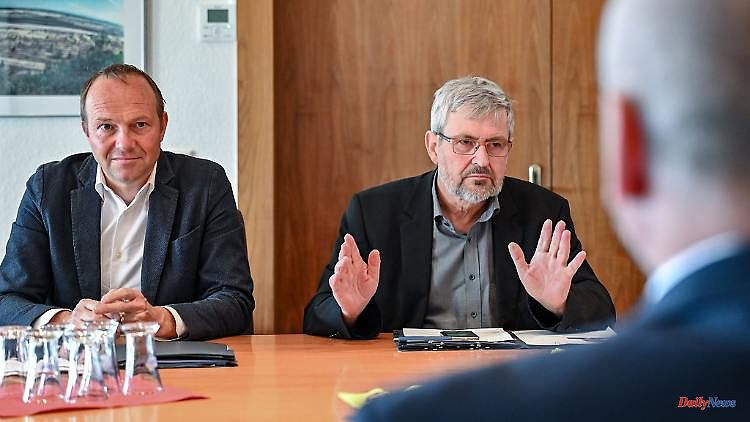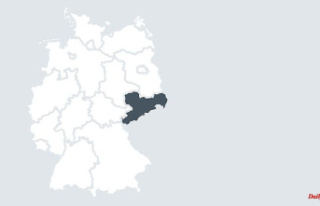As things stand, the 1000 meter distance rule for wind turbines in Saxony will not last long. Because the regulation stands in the way of the federal government's expansion goals for renewable energies.
Dresden (dpa / sn) - Saxony's Energy and Environment Minister Wolfram Günther (Greens) believes that the federal government's expansion goals for green electricity are also feasible in Saxony. "By 2032 we have to designate two percent of the state's area for wind energy. That is possible and necessary. Because if Saxony doesn't do that, we will end up in a process that we no longer have control over. Either we design it ourselves or we will be designed." , said Günther on Friday of the German Press Agency. However, the area targets of the federal government could not be met with the existing restrictions in Saxony.
"One of these restrictions is the 1,000-meter rule. How we adapt the Saxon rules will be discussed in the coming weeks and months," emphasized the minister. The Saxon state parliament only changed the building regulations at the beginning of June and also sealed the 1000 meter minimum distance between wind turbines and residential buildings. This can be deviated from when it comes to repowering - i.e. retrofitting existing systems - or if the distance in the outside area is to be reduced at the request of the municipalities.
"The 1000-meter distance is the compromise of a coalition in which there are different views on the pace of the energy transition," stressed Günther. The Saxon expansion goals from 2019 could have been achieved with these 1000 meters, but not the goals of the federal government. "The two percent area target is necessary in order to meet what is urgently needed in Saxony: We need effective climate protection. We want to remain an energy and industrial country. We must become independent of fossil energy imports from Russia."
"The binding area target opens up additional economic opportunities for us. Saxony is an energy state. Saxony will therefore benefit from the energy transition," said Günther. Companies would purchase inexpensive regional green electricity much more than today. "Plant manufacturers, trades and medium-sized companies will benefit from orders from the energy transition. The accelerated energy transition will also give the Saxon solar industry a boost. The Saxon solar manufacturers are the core of the European solar renaissance."
According to the package of laws approved by the Federal Council on Friday, the federal states are to be legally obliged to provide more space for the generation of green electricity. Different targets apply to individual countries by the end of 2032 because there are different requirements for the expansion of wind energy. Countries that exceed their targets should be able to transfer land to other countries by means of a state treaty.
"A transfer of areas is clearly not an issue for me as energy minister," stressed Günther. That would be harmful for Saxony. "Because that would mean rejecting the huge economic opportunities of the energy transition. The transfer of land would be a tax-financed deindustrialization program for Saxony." The availability of Saxon green electricity is a "tough location factor".
Günther also commented on the longer lifespan of coal-fired power plants: "This does not apply to Saxon lignite-fired power plants." The goal remains the phase-out of coal by 2030. "It's a question of climate protection. The need for climate protection is self-explanatory if we just look at the Saxon forests and the effects of the drought on agriculture." But now in the crisis you need coal - mostly hard coal - to replace the around 12 percent gas that is currently used in electricity production: "That's bitter."












